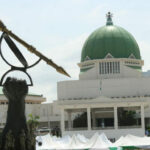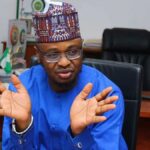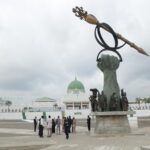Nigeria, our dear country, is full of ironies. One of them is that we now urgently need external, independent committees or bodies to oversee the performance of the Oversight Committees of the National Assembly. We need to know whether and how they are carrying out their oversight functions.
Our National Assembly members owe us a duty of care, but their performance in this regard has been far below expectations over the years. They are saddled with what is generally called oversight functions under which they are expected to hold operators of the nation’s institutions and agencies of government accountable, demanding from them performance indicators and outcomes versus resources utilised.
A couple of months after our legislators took delivery of their elegant SUVs, they should by now show us how these “machines” have aided them in their oversight functions. After all, that was the major reason for which they demanded the vehicles.
They told a bewildered nation that they needed vehicles to carry them across the Nigerian roads filled with potholes. I had to ask auto engineers questions about SUVs. What is it that is so special? Their answers were quite illuminating. As in sporting activities, these vehicles are built for speed, one explained. Their acceleration is phenomenal: they can easily move from zero km per hour to about 60 km per hour within a few minutes. So, These SUVs are in a class of their own, far more expensive than many other models. They confer elegance, prestige and status on the rider.
- Nigeria’s challenges worsened by collapse of family unit – Lagos dep gov
- Why labour market isn’t favourable to senior citizens’
They told us they wanted to use the vehicles for oversight functions. Yet, two points deflate that claim: the National Assembly Service Commission has a pool of operational vehicles from which they could take whatever vehicles are suitable for that function. Secondly, the oversight functions are not undertaken every day. Therefore, there is hardly any justification for their demand for such a class of vehicle.
So, what impact have the vehicles had on their oversight functions to get this economy to perform better? Someone somewhere may blush at this and ask why so soon. But that is beside the point.
That is why in the two chambers there are committees assigned to specific agencies of government with responsibilities. In the Senate, there are about 57, with about 89 in the Lower Chamber. So, we have in the Senate such committees as those on Aviation, Banking/Insurance, Industry, Solid Minerals, Health, etc. We have more in the House, including those on Poverty Alleviation, Banking and Currency, Capital Market, etc. There are also four Joint Committees of the National Assembly, namely those on Agriculture and Rural Development; Labour and Productivity, Petroleum Resources and Justice; Finance, Appropriation and Electoral Matters, and Health and Commerce.
While our constitution is long on the list of committees of the National Assembly, we are, unfortunately, short on their benefits to the Nigerian people. Indeed, the failure of our lawmakers to carry out these statutory functions effectively is the major reason things have remained so bad in the country, and continue to worsen by the day.
So, where are the oversight functions of the National Assembly Committee being carried out, and what results are they delivering? How are these reflecting on the lives of Nigerians, who are daily sinking deeper into misery?
We have committees on power, yet Nigerians virtually live in darkness. On Monday, December 11, 2023, the country was in darkness for most of the day. Who has seen the members of the Committees on power drive their SUVs to a power plant to see what the problems are? Who has seen them drive their super vehicles to ensure that power is given to Nigerians, after several years of infantile power sector reforms that have ended up putting the majority in darkness?
Or, have members of the Committee on Health, whether in the Chambers or the Joint Committee, hopped onto their vehicles and driven at break-neck speed to a hospital in a rural area to see for themselves the sorry state of our health sector? If they do, they will see and perhaps appreciate the danger facing this sector in part due to the “Japa” syndrome now threatening our economy from all corners.
We now have a situation where both doctors and patients disappear from the hospitals. The doctors are leaving because the salaries and conditions of service are nothing compared with what they can conveniently earn abroad; the patients are running away because they cannot afford the rising bills. Something must be done.
Or, have the SUVs aided in any way the work of the House Committee on Poverty Alleviation? Does driving in the vehicle offer a special insight into the causes and solutions of poverty?
Where does the personal interest of our public figures stop, so they can properly take up the functions for which they were elected or appointed, as the case may be? Another irony we see today in the country is that the State has become a means of production, according to Prof. Laja Odukoya, the Dean of the Faculty of Social Sciences, University of Lagos.
The professor made the declaration a week ago in a speech at the Third National Conference/Annual General Meeting of the Association of Media and Communication Researchers of Nigeria (AMCRON), at UNILAG.
It is an irony because, as O’level economics teaches us, the factors of production are land, capital and labour. Entrepreneurs (some people say this is the fourth factor) or the group of people we may call capitalists combine these three factors to build wealth. In doing this they take risks, such as borrowing more money or even putting their own hard-earned money into the business. They build enterprises, sometimes gigantic organisations. In return for their risks, they are handsomely rewarded, earning lots in return for their entrepreneurship.
Ironically, we now have a group of politicians, according to the UNILAG Prof., who capture state power to become billionaires. Such persons have converted the Nigerian State (that is the government and its agencies) to their factors of production.
Consequently, we now have people who create wealth without investment, said the professor. And this is highly glamourised, unfortunately. Meanwhile, the economy is in tatters. Wealth is rising but output is not keeping pace with that. The real factors of production in the real sector of the economy are shrinking; labour is lying idle as unemployment rises, while capital has become quite costly as interest rates rise. These call for a rethink.

 Join Daily Trust WhatsApp Community For Quick Access To News and Happenings Around You.
Join Daily Trust WhatsApp Community For Quick Access To News and Happenings Around You.


